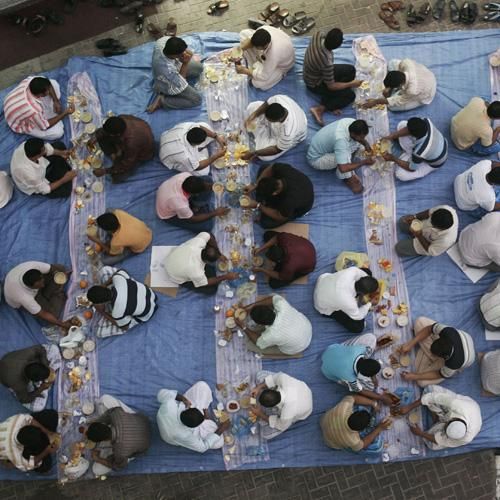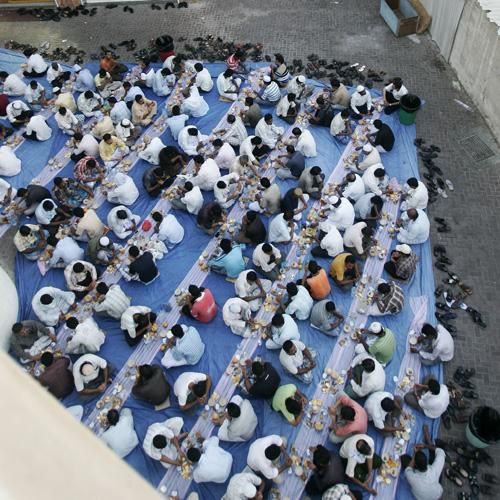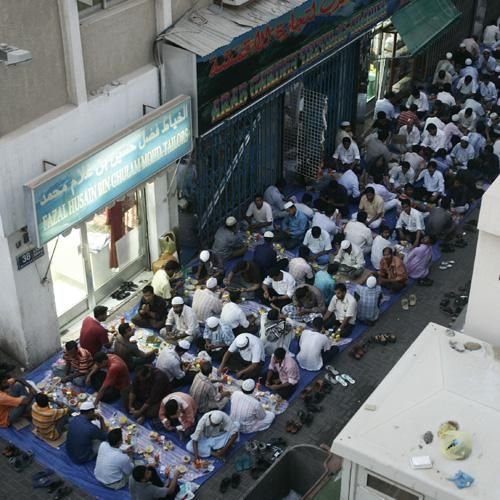So many people come together at sunset to end their daily Ramadan fast at Deira's Lootah mosque you can't see the streets any more.
Like little streams quickly turning into flash floods, the worshippers make rows as far as the eye can see in the surrounding alleys in what is known as “the UAE's biggest iftar''.
Representatives of the Indian Muslim Association (Iman) which organises the event said the “daily wonder'' has got bigger since last year – with over 5,000 people feasting together – despite a sluggish economy, flu fears and sticky weather conditions.
Fork-lifts are used to unload the mountains of food and drink delivered in trucks.
Sense of belonging
The crowd swells to almost 7,000 people on weekends and in the last ten nights of Ramadan, which are considered to be especially holy.
“It's hot, the days are long and people are worried about budgets – but they still come in, wave upon wave, even from as far away as Sharjah and Ajman,'' said Liyakath Ali, Iman's General Secretary.
“It's not just about food, people like to feel a sense of belonging. As the numbers grow, so does the sense of brotherhood,'' he said.
The tradition of holding iftars at the simple white mosque started 30 years ago. Only 150 residents used to turn up during the initial years. Now the numbers speak for themselves. Even the Consul General of India, Venu Rajamony, was seen dining here recently.
It is not clear why this particular iftar venue is so popular. Perhaps being in the heart of old Dubai, behind the traditional gold market, makes the area easy to explore on foot.
Like other public iftars at mosques, everything on the menu – dates, water, fruits, milk, juice, fried snacks - is free.
The preparations for the giant feast begin many hours before sundown. In a back-breaking job, around 50 volunteers spread out plastic seating mats, arrange equal portions of food per person, neatly set up trash bins – and clean up afterwards.
What it takes to feed 5,000 people
- Dates: 130 kilograms
- Water: 850 litres
- Fruit: 5,000 oranges, apples or watermelon slices
- Kanji (soup): 3,300 litres
- Samosa: 5,000 pieces












